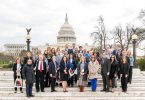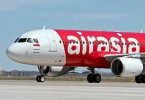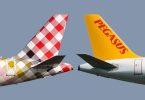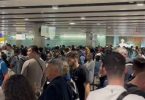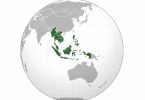L'Associació Internacional del Transport Aeri (IATA) welcomed the support of those governments around the world that have provided financial relief to airlines and urged other governments to follow suit before more damage is done.
“Airlines are fighting for survival in every corner of the world. Travel restrictions and evaporating demand mean that, aside from cargo, there is almost no passenger business. For airlines, it’s apocalypse now. And there is a small and shrinking window for governments to provide a lifeline of financial support to prevent a liquidity crisis from shuttering the industry,” said Alexandre de Juniac, IATA’s Director General and CEO.
According to IATA’s latest analysis, released today, annual passenger revenues will fall by $252 billion if severe travel restrictions remain in place for three months. That represents a 44% decline compared to 2019. This is well-over double IATA’s previous analysis of a $113 billion revenue hit that was made before countries around the world introduced sweeping travel restrictions.
“It did not seem possible, but in a matter of days, the crisis facing airlines worsened dramatically. We are 100% behind governments in supporting measures to slow the spread of Covid-19. But we need them to understand that without urgent relief, many airlines will not be around to lead the recovery stage. Failure to act now will make this crisis longer and more painful. Some 2.7 million airline jobs are at risk. And each of those jobs supports a further 24 in the travel and tourism value chain. Some governments are already responding to our urgent calls, but not enough to make up the $200 billion needed,” said de Juniac.
In urging more government action, de Juniac cited examples of state support:
- Austràlia has announced an A$715 million (US$430 million) aid package comprising refunds and forward waivers on fuel taxes, and domestic air navigation and regional aviation security charges.
- Brasil is allowing airlines to postpone payments of air navigation and airport fees.
- Xina has introduced a number of measures, including reductions in landing, parking and air navigation charges as well as subsidies for airlines that continued to mount flights to the country.
- Hong Kong Airport Authority (HKAA), with government support, is providing a total relief package valued at HK$1.6 billion (US$206 million) for the airport community including waivers on airport and air navigation fees and charges, and certain licensing fees, rent reductions for aviation services providers and other measures.
- Nova Zelanda government will open a NZ$900 million (US$580 million) loan facility to the national carrier as well as an additional NZ$600 million relief package for the aviation sector.
- La de Noruega government is providing a conditional state loan-guarantee for its aviation industry totaling NKr6 billion (US$533 million).
- De Qatar Minister of Finance has issued a statement of support for the national carrier.
- Singapur has undertaken relief measures valued at S$112 million (US$82 million) including rebates on airport charges, assistance to ground handling agents, and rental rebates at Changi Airport.
- Suècia i Dinamarca announced $300m in state loan guarantees for the national carrier.
In addition to this support, the European Central Bank, and the United States Congress are expected to enact significant measures to aid the airline industry in their respective jurisdictions as part of large packages of broader economic measures.
“This shows that states around the globe, recognize the critical role that aviation plays in the modern world. But many others have still to act to preserve the important role of this sector. Airlines are an economic and employment engine. This is demonstrated even as passenger operations shrink, as airlines continue to deliver cargo that is keeping the economy going and getting relief supplies where they are needed most. The ability for airlines to be a catalyst for economic activity will be vital in repairing the economic and social damage that COVID-19 is now causing,” said de Juniac.
IATA is calling for:
- Suport financer directe als transportistes de passatgers i de càrrega per compensar els ingressos i la liquiditat reduïts atribuïbles a les restriccions de viatge imposades com a resultat del COVID-19;
- Loans, loan guarantees and support for the corporate bond market by the Government or Central Banks. El mercat de bons corporatius és una font vital de finançament, però la elegibilitat dels bons corporatius per al suport del banc central ha de ser ampliada i garantida pels governs per proporcionar accés a una gamma més àmplia d'empreses.
- Descomptes fiscals: Bonificacions dels impostos sobre nòmines pagades fins al 2020 i / o una extensió de les condicions de pagament per a la resta del 2020, juntament amb una renúncia temporal dels impostos sobre els bitllets i altres imposicions imposades pel govern.




